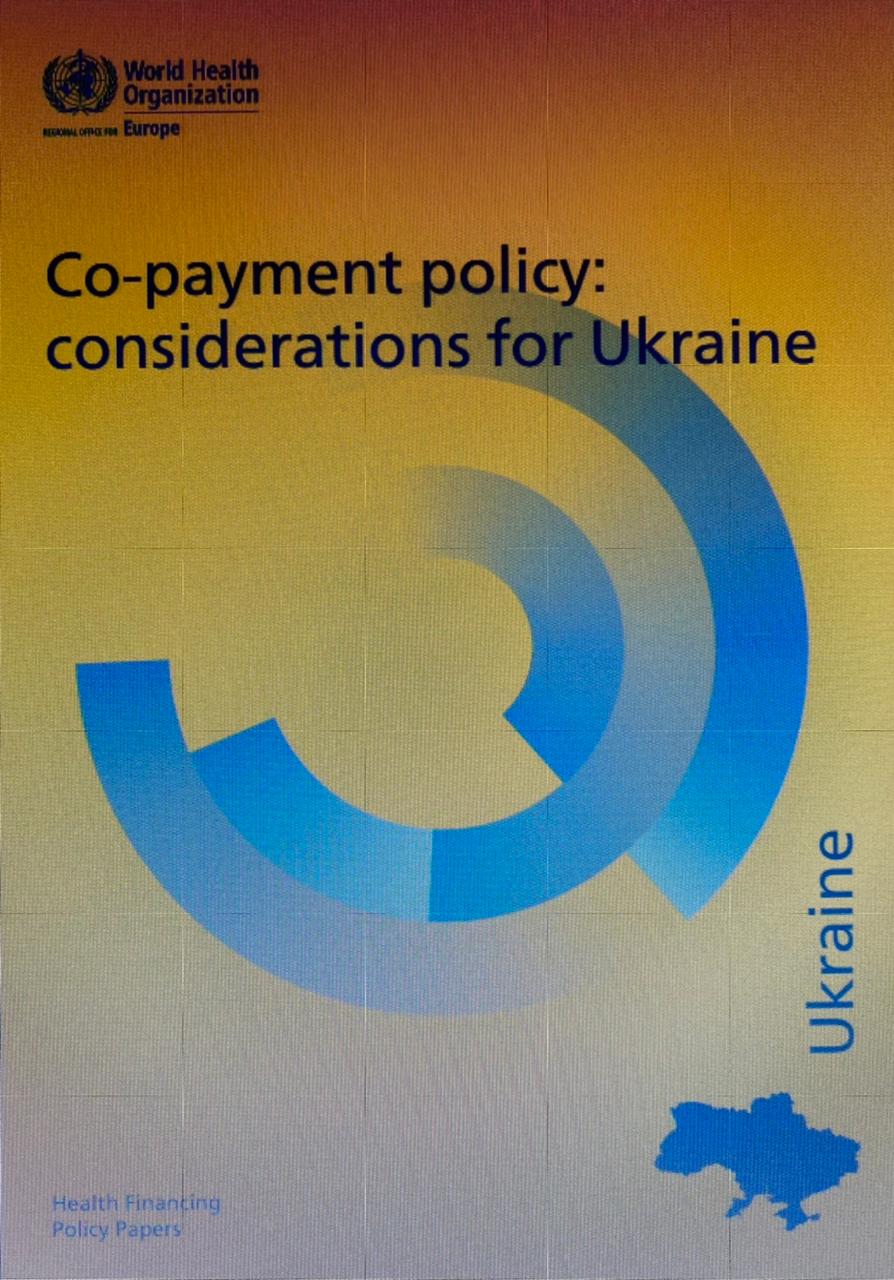Part of the WHO Regional Office for Europe, Barcelona Office for Health Systems Financing has published a policy brief titled “Co-payment policy: considerations for Ukraine”, which contains policy recommendations regarding co-payments [1].
In its description that accompanies the publication, WHO informs readers that Ukraine’s constitution provides citizens with entitlement to free health care in public facilities, but the current low levels of public spending on health and an inefficient provider network exacerbate the issue of informal payments, which, in turn, contribute to high levels of out-of-pocket spending on health [2].
Ukraine is implementing comprehensive health financing reforms since 2016, aiming to improve population health outcomes and ensure financial protection from excessive out-of-pocket payments. Alongside these reforms, WHO mentions, a discussion is ongoing about introducing co-payments for services covered by the Ukrainian Programme of Medical Guarantees [2].
In its publication, WHO warns the government of Ukraine that co-payments may create additional financial barriers to access and increase financial hardship for the people most in need of health services. The core message of the WHO Barcelona Office is that any decision-making on implementation of co-payments should involve public consultation and technical discussion reflecting international experience and the current context in Ukraine [2].
The document outlines the ways in which unexpected or negative consequences may take place if co-payments are introduced as a policy instrument, and summarizes international evidence on co-payments with tailored policy considerations for Ukraine [3].
This policy brief is a valuable source of insight not only for Ukraine, but also for readers, health system analysts and national policy-makers across the board in other countries, especially those that share a similar geopolitical and historical context (such as the former Soviet countries in the region).
For reference, The WHO Barcelona Office was established in 1999 and serves as a centre of excellence in health financing for universal health coverage. It works with Member States across WHO’s European Region to promote evidence-informed policy making. A key part of the work of the Office is to assess country and regional progress towards universal health coverage by monitoring financial protection – the impact of out-of-pocket payments for health on living standards and poverty. Financial protection is a core dimension of health system performance and an indicator for the Sustainable Development Goals [3].
Sources:
[1] https://twitter.com/WHOUkraine/status/1403378139133267985
[3] Co-payment policy: considerations for Ukraine. Copenhagen: WHO Regional Office for Europe; 2021. Licence: CC BY-NC-SA 3.0 IGO.


